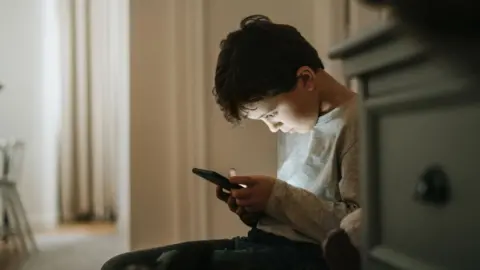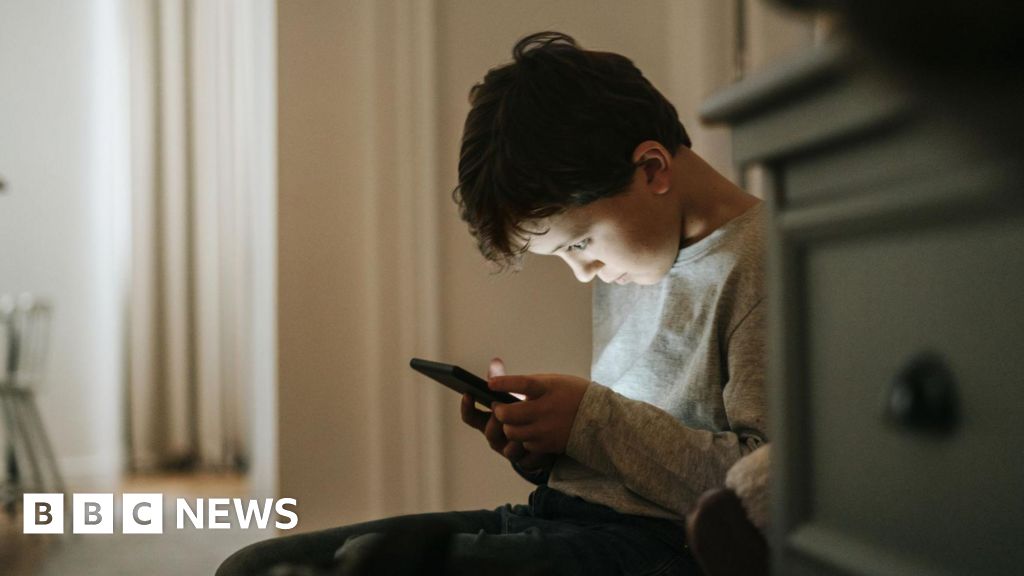 Getty Images
Getty ImagesDiscord is testing face scanning to verify some users’ ages in the UK and Australia.
The social platform, which says it has over 200 million monthly users around the world, was initially used by gamers but now has communities on a wide range of topics including pornography.
The UK’s online safety laws mean platforms with adult content will need to have “robust” age verification in place by July.
And social media expert Matt Navarra told the BBC “this isn’t a one-off – it’s the start of a bigger shift”.
“Regulators want real proof, and facial recognition might be the fastest route there,” he said.
But campaigners have said these types of checks are ineffective and could lead to privacy issues.
“Age assurance is becoming the new seatbelt for the internet,” said Mr Navarra.
“Will it become the norm in the UK? Honestly, yes, probably.”
He said he believed the incoming changes in online safety laws mean online platforms would beef up their age verification processes.
“The era of ‘click here to confirm you’re 13’ is dead,” he said.
“Get age verification wrong now, and you don’t just lose users – you could lose a courtroom battle or incur fines.”
Firms which do not comply with the Online Safety Act could be fined up to 10% of their global turnover.
Instagram previously brought in age checks using facial analysis in 2022 for users who want to change their profile settings to be over 18.
The social media company requires users to take a selfie video on their phone and uses AI to estimate the person’s age.
Like Discord, they can alternatively upload a picture of their photo ID.
The US-based platform says the verification – which it describes as “an experiment” – will be a one-time check.
It will apply the first time a user comes across content which it has flagged as sensitive, or if they change their settings on viewing sensitive media.
Users can either use the face scanner or upload a photo of their ID to confirm their age.
It says information used for age checks will not be stored by Discord or the verification company.
Face scans will stay on the device and not be collected, and ID uploads will be deleted after the verification is complete, according to the company.
Content which is flagged as sensitive is already automatically blocked or blurred for teenagers.
‘No silver bullet’
Privacy campaign group Big Brother Watch says age check technology “shouldn’t be seen as a silver bullet solution”.
Senior advocacy officer Madeleine Stone says they can pose a risk to users, “including security breaches, privacy intrusion, errors, digital exclusion and censorship”.
While industry group the Age Verification Providers Association says there is a “wide range of convenient, privacy-preserving methods”.
Their executive director Iain Corby told the BBC the latest technology can estimate age “within one to two years based on a selfie or how you move your hands”.
But he also said platforms have a choice on how to use age verification.
“They can remove the harmful content altogether, apply age checks to access the whole site, or just check ages before allowing access to high-risk pages and posts,” he said.
Australia is planning to bring in a social media ban for all under-16s this year.
Recent research found more than 80% of Australian children aged eight to 12 use social media or messaging services that are only meant to be for over-13s
New Jersey attorney general Matthew J. Platkin said on Thursday that his office was suing Discord, alleging the company had misled parents about its safety controls and the risks faced by children on the app.
Discord was approached for comment.




